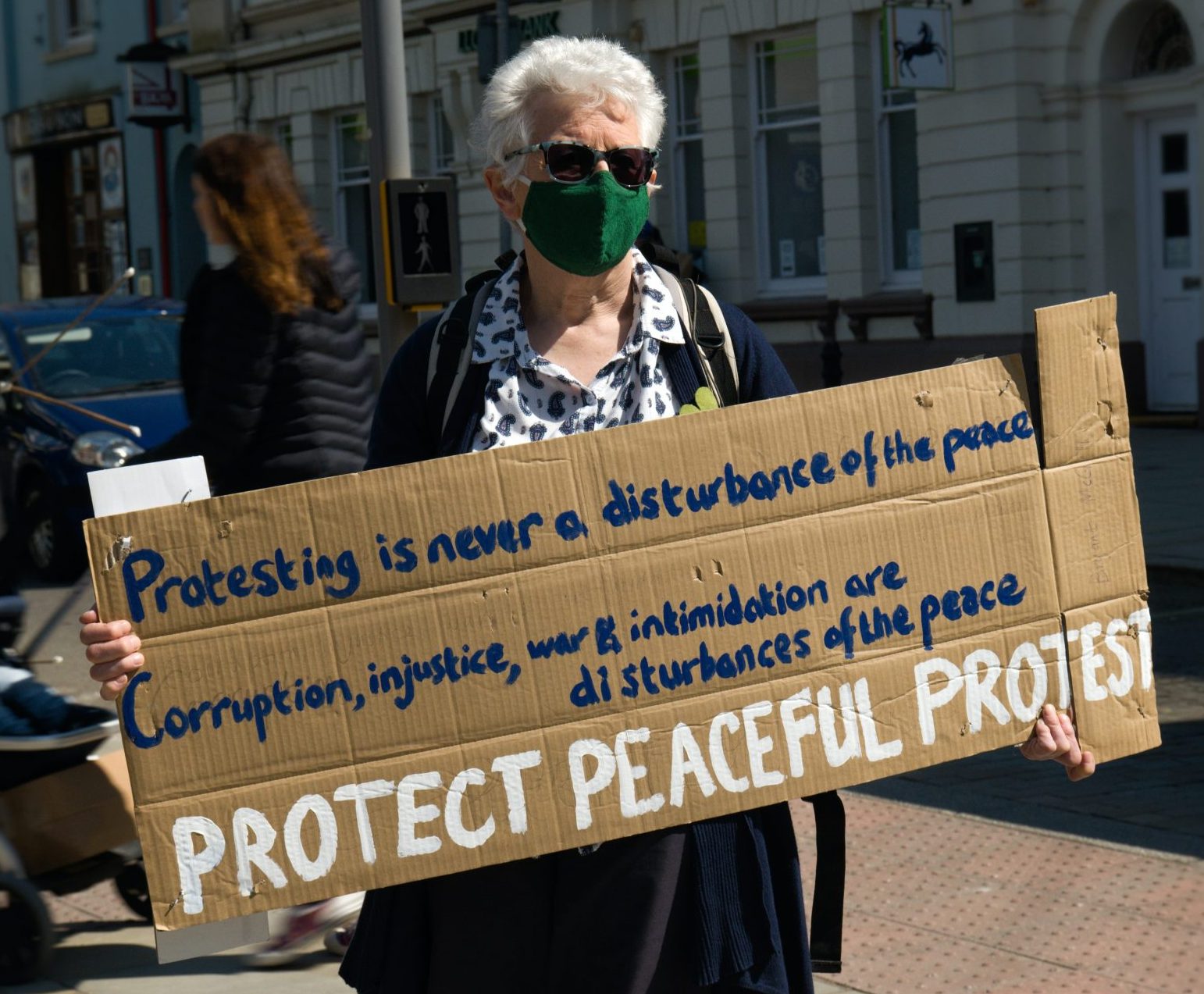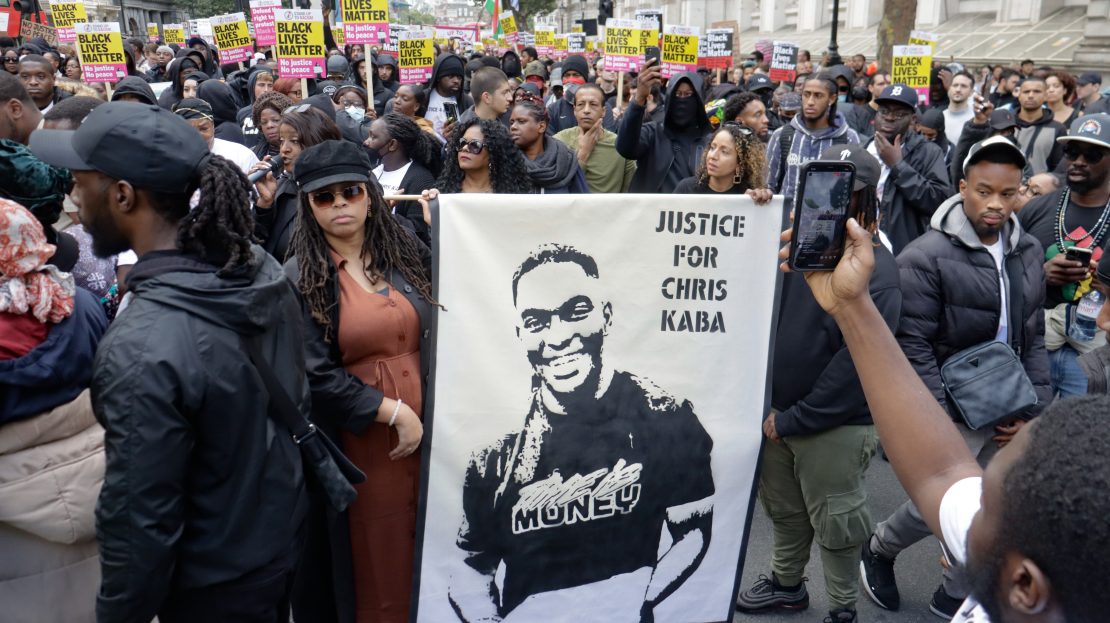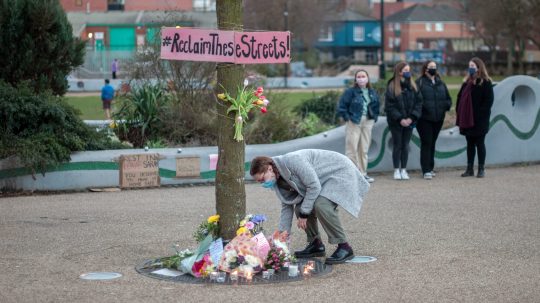Following the death of Queen Elizabeth II and ascension to the throne of King Charles, several people have been arrested in connection to protests and criticisms of the monarchy. The ‘anti-monarchy’ protestors were arrested this week, for holding up signs reading: ‘Not my King’, blank pieces of paper and calling out messages of criticism of Prince Andrew. Individuals were arrested and some charged, despite them exercising their rights to free speech and to assemble, both of which are enshrined in the Human Rights Act (HRA) and are a central part of democracy.
A man only identified as Rory, 22, joined the crowds who lined the streets of Edinburgh to see the Queen’s coffin make its journey to London.
The procession was joined by Prince Andrew, who can be seen in a video walking behind the Queen’s coffin. As the procession made its way down the royal mile, Rory shouted: “Andrew, you’re a sick old man,” referring to an ongoing FBI investigation into a paedophilic-sex-trafficking ring, which Prince Andrew has been linked to.
Heckler in Edinburgh shouts: “Andrew, you're a sick old man.” pic.twitter.com/e86pwAUp5m
— PoliticsJOE (@PoliticsJOE_UK) September 12, 2022
Earlier this year, Prince Andrew reached an out-of-court settlement worth £12m with Virginia Roberts Giuffre, who has testified that she was trafficked by the late US financier Jeffrey Epstein and his partner Ghislaine Maxwell, and later sexually abused by the prince.
In January, the Queen stripped him of his HRH status, military titles and royal patronages. He denies the allegations.
Rory was immediately pushed to the floor by police. As he was taken into a side street by the police he calmly said to the officer: “Hey I’ve done nothing wrong.” Rory, who is reported to have stated that he is not an anti-monarchist, was physically assaulted by bystanders amid chants of “God save the king”.
Spoke to the protestor who was arrested on the Royal Mile today for shouting abuse at Prince Andrew during the Queen’s procession – his name is Rory, here’s what he had to say: pic.twitter.com/8GTwnVGLF7
— Joseph Anderson (@janderson_news) September 12, 2022
In a separate video, Rory stated: “Powerful men shouldn’t be allowed to commit sexual crimes and get away with it.”
‘Breach of the peace’
In a separate incident a 22-year old woman was arrested in Edinburgh after holding up a sign that read: “F**K IMPERIALISM. ABOLISH MONARCHY.”
NEW: The 22-year old woman who was arrested after holding up this anti-monarchy placard at St Giles' Cathedral has now been CHARGED “in connection with a breach of the peace", @PoliceScotland confirm.
Will appear at Edinburgh Sheriff Court at a later date. pic.twitter.com/gFdBkoISB6— Darshna Soni (@darshnasoni) September 12, 2022
The woman was charged with breach of the peace for holding up the sign outside St Giles’ Cathedral and will appear at Edinburgh Sheriff Court at a later date.
It was also reported that a 74-year-old man was arrested near the Palace of Holyroodhouse “in connection with a breach of the peace”. He was also charged.
Another man was arrested in Oxford after calling out: “Who elected him?” in response to the proclamation declaring King Charles III the new monarch being read out. Symon Hill, 45, said he stopped at the public event on his way home from church. Bystanders told him to “shut up”, before he was arrested by police.
Hill has stated: “I didn’t in any meaningful sense disrupt the ceremony; I just called out something that a few people near me would have heard, and then they carried on with the ceremony, and they [the police] collared me. I find it really alarming that you can be arrested for expressing an opinion in public. I am feeling quite shaken.”
Police said the arrests were for breach of the peace and public order offences. But they also gave different reasons for arrest, including legislation under the new Policing Act.
Just went to Parliament Square & held up a blank piece of paper. Officer came & asked for my details. He confirmed that if I wrote “Not My King” on it, he would arrest me under the Public Order Act because someone might be offended.
— Paul Powlesland (@paulpowlesland) September 12, 2022
The Law
Criminal barrister and co-author of The Protest Handbook Tom Wainwright said that in England and Wales, police can only arrest for breach of the peace if there is a threat of violence.
Wainwright said: “Where the threat comes from someone responding to the protest, an arrest of the person protesting can only be justified in exceptional circumstances. Police can arrest for s5 of the Public Order Act 1986 if there were threatening or abusive words said or displayed in public which are likely to cause harassment, alarm or distress.”
However, he also said that a defence to s5 would be to show that the behaviour in question was reasonable. For example, if someone was arrested at a protest, the court must take into account the right to free speech. Under Article 10, free speech includes speech which others may find shocking, offensive, unwelcome, distasteful or provocative.
Wainwright explained: “A court could only convict in these circumstances if it was necessary to do so in order in the interests of public safety, the prevention of disorder or for protecting the rights of others. At the time of the Royal Wedding, large numbers of anti-monarchist protestors were pre-emptively arrested for anticipated breach of the peace on very spurious grounds. It is worrying that the police appear to be adopting the same heavy handed approach here.”
Protest is a central part of democracy
Whether it is protesting or simply holding a sign up in a public space, freedom of speech and the right to assemble play a central part in democracy.
Earlier this year Russian civilians were arrested in St Petersburg for holding up blank signs as part of demonstrations against President Vladimir Putin’s invasion of Ukraine. Police officers in the city of Nizhny Novgorod arrested a woman whose sign was also blank.
Elsewhere, a 76-year-old woman called Yelena Osipova was detained by eight armed police officers for holding up a sign reading: “Soldier, drop your weapon and you will be a true hero!” Opisova is thought to be one of the last survivors of the siege of Leningrad, the city now known as St Petersburg. The siege lasted 872 days and led to the death of one million people.
In recent years in the UK we have witnessed peaceful protests and calls for justice that have successfully placed pressure on institutions to change. Recent calls for justice include a march to protest against the fatal shooting of Chris Kaba in London. After mounting pressure, the Metropolitan police has suspended the firearms officer involved.





